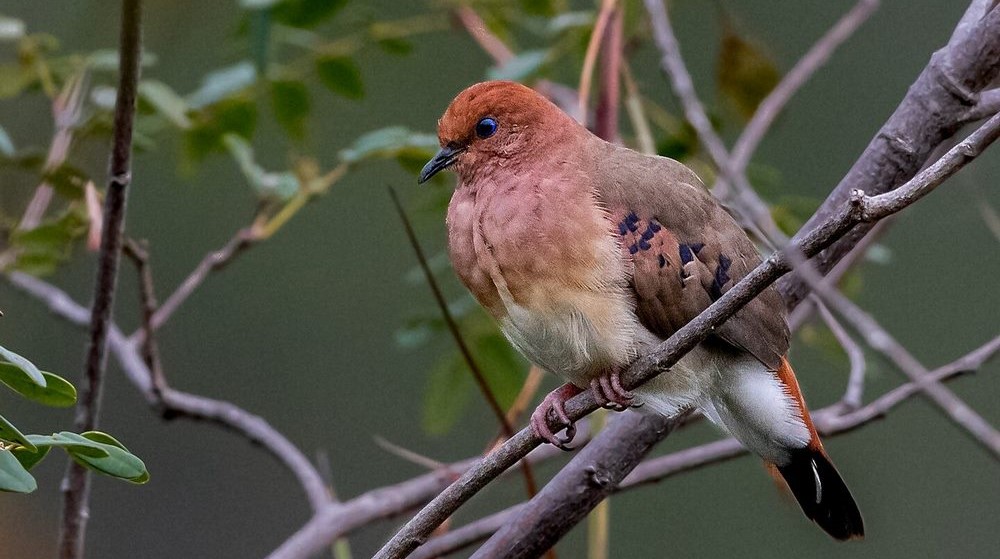 Columbina cyanopis, or the blue-eyed dove, in the Rolinha do Planalto Natural Reserve – credit, Hector Bottai CC BY-SA 4.0.
Columbina cyanopis, or the blue-eyed dove, in the Rolinha do Planalto Natural Reserve – credit, Hector Bottai CC BY-SA 4.0.A UK zoo is celebrating after helping to hatch three of the world’s rarest birds in what could be a breakthrough moment in saving the critically-endangered species from extinction.
The trio of blue-eyed ground dove chicks were successfully hand-reared in Brazil, boosting the survival odds of one of the most endangered birds on the planet, only 11 of which are thought to remain in the wild.
An international team, including British experts from the Chester Zoo, managed to rear the birds in the Brazilian state of Minas Gerais, the only place they are found.
The team, also featuring Brazilian and American conservationists, say their arrival could provide a vital lifeline for the ultra-rare species by boosting their insurance population.
The blue-eyed ground dove was a species shrouded in mystery, with no confirmed records for more than 70 years, until its rediscovery in 2015.
“It’s a real privilege for Chester Zoo to be involved in the work to help conserve the blue-eyed ground dove,” said Andrew Owen, Chester Zoo’s head of birds.
“This unique species is on the brink of extinction and without the dedication and passion of all the conservationists involved, including Chester Zoo’s bird staff, this bird may be lost forever.”
“This year saw the successful hand-rearing of three blue-eyed ground doves – building on the successes of 2023 and 2024 and doubling the conservation-breeding insurance population.”
The effort to build on those successes started earlier this year, when a team of Brazilian and international bird conservationists were tasked with selecting and incubating a small number of wild-laid eggs. The resulting hatchlings would help to create an insurance population in human care.
Andrew traveled to Brazil to provide technical support while Victoria Kaldis, lead keeper for birds at Chester Zoo, also flew over to assist with the hand-rearing of the chicks. The effort was led by Minas Gerais’ Parque das Aves and SAVE Brasil, with additional support coming from the Toledo and Bronx zoos in the United States.
“Seeing these chicks is exciting. Each hatching represents a real chance to reverse the fate of this species,” said Paloma Bosso, technical director of Parque das Aves. “It is a joy and also a great responsibility.”
WORLD’S RAREST BIRDS HANGING IN THERE:
“With the arrival of these three new individuals, Parque das Aves is now home to six blue-eyed ground doves. All are being carefully monitored and are part of a coordinated reproductive management plan.”
The blue-eyed ground dove is Critically-Endangered according to the the International Union for Conservation of Nature’s Red List.
It once had a wide distribution in the Cerrado biome (the Brazilian savanna), but due to habitat loss driven by farming and timber plantations, it has radically declined.
Currently, the only known population is found in Botumirim in the state of Minas Gerais and a 2025 census confirmed the species remains exceedingly rare.
“The blue-eyed ground dove depends on the efforts of many people and institutions, so that its song can be heard in the Cerrado for many years to come,” said Ben Phalan, head of conservation at Parque das Aves.
TWEET About How Wonderful It Is That These Chicks Hatched Successfully…
Source link

